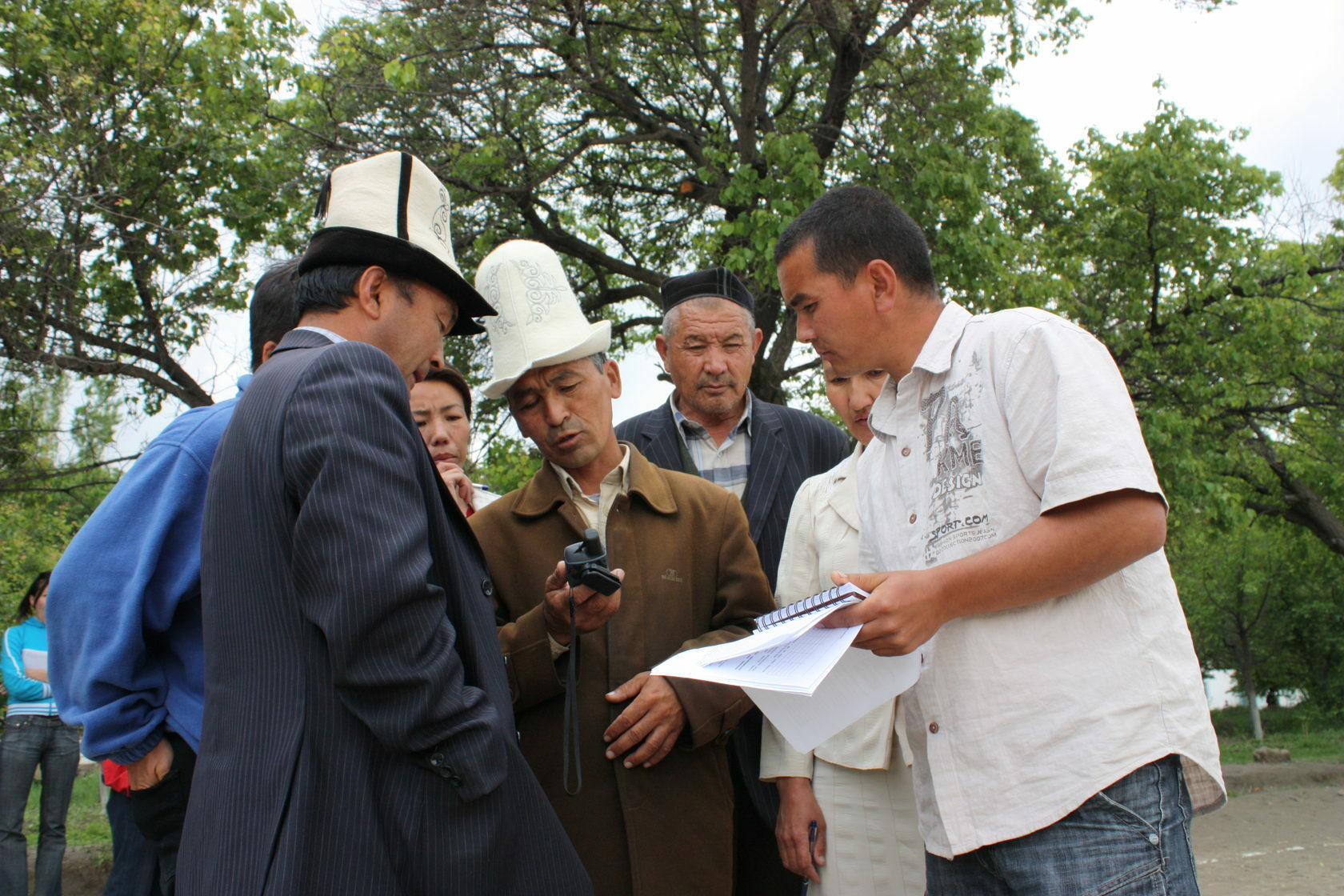Survey on Level of Ownership of Kyrgyz Farmers towards the Rural Advisory Service Network
The Rural Advisory Service (RAS) system is an advisory service consisting of seven legally autonomous regional level RAS organizations (regional RASs) governed by organizational boards and managed by regional managers. Each regional RAS is registered or in the process of registration as a public association.
The RAS was formed and started its activities as a donor-funded project in 1998. Since then, it has been in the process of continuous institutional development. Initially, this process was driven by donors who wanted to see SCS as an association of seven independent regional extension services in which farmers would play a leadership role. Later, in view of the imminent withdrawal of donor funding, the SCS management set about organizing further decentralization of the service and reducing costs.
Years of implementation: 2006
Location: Chui, Talas, Naryn, Issyk-Kul, Batken, Osh and Jalal-Abad oblasts
Donor: Swiss Agency for Development and Cooperation
This study was conducted to analyze and assess the degree of ownership of the Rural Advisory Service (RAS) by farmers through the prism of their own perception.
The main objective of the study was to "impartially and objectively assess how deeply, in reality, the Rural Advisory Service network is managed and owned by farmers".
Widths and depths of the research:
The study covered 700 people in 15 districts across all seven regions of the country. In total, the study was conducted in 97 villages, representing 30% of the villages in which the RAS is present. Practically all main methods of sociological research were applied in the project implementation: document analysis, desk research, observation, questionnaire survey, in-depth and semi-structured interview, focus groups.
Project results
What became evident from the results of the study is that for farmers who are members of SCS, quality, access and responsiveness of service delivery are more important than participation in management and control. Farmers, in most cases, see themselves as beneficiaries of services from SCS as an external entity but not as an association belonging to them. The survey results indicate that more than 75% of farmers wished to become members of SCS in order to access its services at a discounted rate, and less than 7% joined in order to be eligible to participate in SCS policy discussions and activities.
Passive membership is of course characteristic of many associations, but the lack of formal channels for members to monitor activities and the absence of any foreseeable attempt to do so suggests to us that this element of 'belonging' is negligible.
Farmers interviewed felt that middle-income farmer groups predominate among the beneficiaries of SCS. SCS works with the poor, mostly on behalf of other donors, or as part of special tasks - such as forming self-help groups to obtain credit.
Overall farmer satisfaction with SCS is high. Farmers value the advice and knowledge provided to them by SCS staff. Farmers consider the RAS as the single most significant source of information.
The Rural Advisory Service (RAS) system is an advisory service consisting of seven legally autonomous regional level RAS organizations (regional RASs) governed by organizational boards and managed by regional managers. Each regional RAS is registered or in the process of registration as a public association.
The RAS was formed and started its activities as a donor-funded project in 1998. Since then, it has been in the process of continuous institutional development. Initially, this process was driven by donors who wanted to see SCS as an association of seven independent regional extension services in which farmers would play a leadership role. Later, in view of the imminent withdrawal of donor funding, the SCS management set about organizing further decentralization of the service and reducing costs.
Years of implementation: 2006
Location: Chui, Talas, Naryn, Issyk-Kul, Batken, Osh and Jalal-Abad oblasts
Donor: Swiss Agency for Development and Cooperation
This study was conducted to analyze and assess the degree of ownership of the Rural Advisory Service (RAS) by farmers through the prism of their own perception.
The main objective of the study was to "impartially and objectively assess how deeply, in reality, the Rural Advisory Service network is managed and owned by farmers".
Widths and depths of the research:
The study covered 700 people in 15 districts across all seven regions of the country. In total, the study was conducted in 97 villages, representing 30% of the villages in which the RAS is present. Practically all main methods of sociological research were applied in the project implementation: document analysis, desk research, observation, questionnaire survey, in-depth and semi-structured interview, focus groups.
Project results
What became evident from the results of the study is that for farmers who are members of SCS, quality, access and responsiveness of service delivery are more important than participation in management and control. Farmers, in most cases, see themselves as beneficiaries of services from SCS as an external entity but not as an association belonging to them. The survey results indicate that more than 75% of farmers wished to become members of SCS in order to access its services at a discounted rate, and less than 7% joined in order to be eligible to participate in SCS policy discussions and activities.
Passive membership is of course characteristic of many associations, but the lack of formal channels for members to monitor activities and the absence of any foreseeable attempt to do so suggests to us that this element of 'belonging' is negligible.
Farmers interviewed felt that middle-income farmer groups predominate among the beneficiaries of SCS. SCS works with the poor, mostly on behalf of other donors, or as part of special tasks - such as forming self-help groups to obtain credit.
Overall farmer satisfaction with SCS is high. Farmers value the advice and knowledge provided to them by SCS staff. Farmers consider the RAS as the single most significant source of information.
